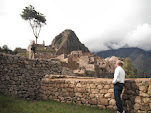Greetings! We’ve enjoyed the words of wisdom concept. Here's an imagined conversation on simplicity between the Buddha, Jesus, and Muhammad, highlighting their teachings and perspectives.
Buddha:
Namaste, dear companions. In teaching about the journey towards enlightenment,
I've always emphasized the importance of simplicity. One can find peace and clarity by letting go of desires and attachments. In the Dhammapada, it is said, "Contentment is the greatest
wealth."
Jesus:
Peace be with you both. I agree, Buddha, my friend. Simplicity allows us to
focus on what truly matters. In my teachings, I often spoke of the virtues of
humility and simplicity. As I said, "Do not store up for yourselves
treasures on earth, where moths and vermin destroy, and where thieves break in
and steal. But store up for yourselves treasures in heaven" (Matthew 6:19-20).
Muhammad:
Assalamu Alaikum, my brothers. Simplicity is indeed a path to greater spiritual
fulfillment. In my words and actions, I tried to emphasize living a simple and
modest life. The Quran advises us to
avoid extravagance: "Eat and drink, but do not waste by excess; He does
not love the excessive" (Quran
7:31).
Buddha:
Our paths may be different, but the essence of simplicity remains central. By
embracing a simple life, we free ourselves from the distractions that hinder
our spiritual growth. In Buddhism, the Middle Way encourages balance, avoiding
both excess and deprivation.
Jesus:
The truth shines through your statements. Simplicity helps us to serve others
better. I taught that we should love our neighbors and care for the needy. A
simple life frees us to focus on these acts of love and charity. "Blessed
are the poor in spirit, for theirs is the kingdom of heaven" (Matthew 5:3).
Muhammad:
Well stated. Likewise, I fully believe simplicity is also linked to charity and
caring for the less fortunate. We all lived simple lives and encouraged our
followers to do the same, emphasizing the importance of helping those in need
and being content with what we have.
Buddha:
It seems that in simplicity, we find a common thread in our teachings. By
reducing our desires and living modestly, we can cultivate inner peace and
contribute to the well-being of others.
Jesus:
Yes, simplicity leads us closer to the wonders of life and to each other. It
allows us to live in harmony and to be present for the moments that truly
matter.
Muhammad:
Let us continue to encourage simplicity among all people. In doing so, we
promote a life of contentment, peace, and spiritual fulfillment.
Expressions
of simplicity can take different forms, for sure. Without question simplicity
aids in spiritual growth and the betterment of humanity.
Enjoy
the simple things in life,
Tom

